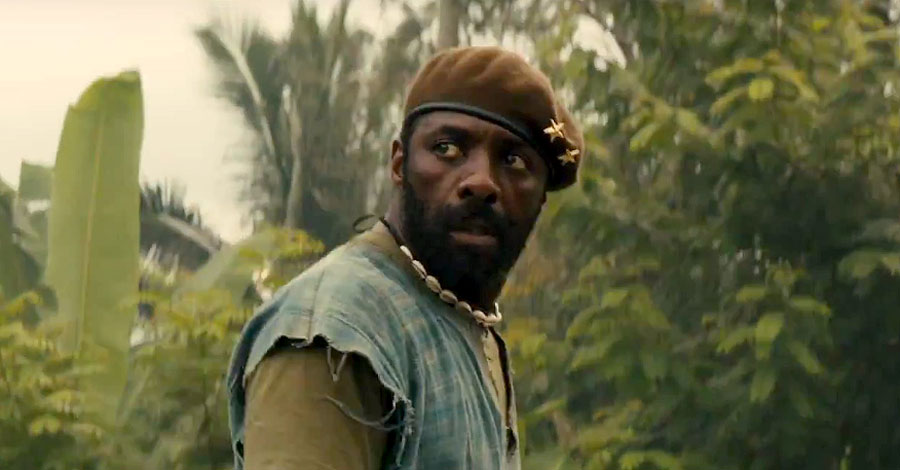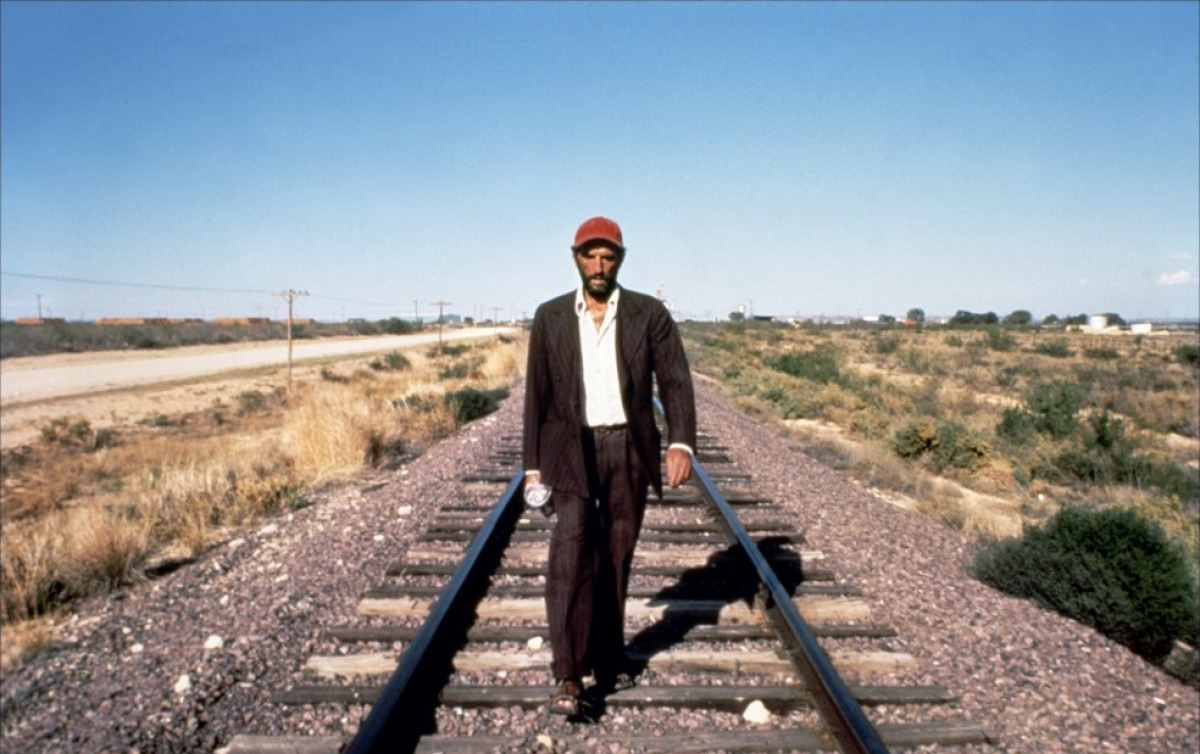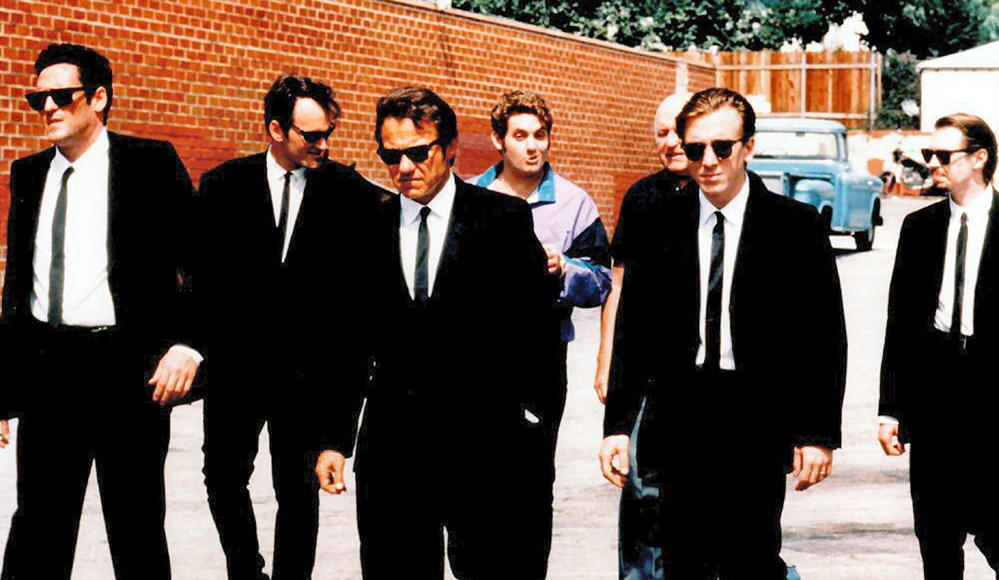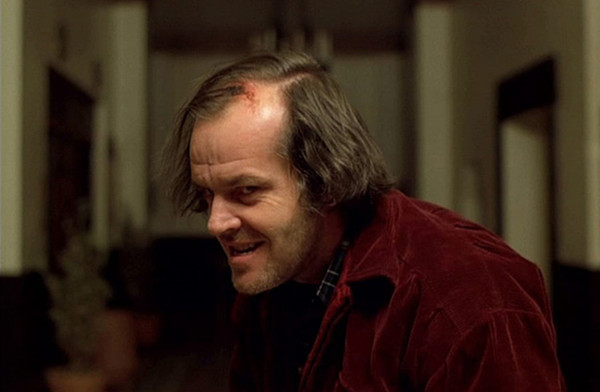
The film industry in the United States is a massive one: on average, there are 600 films produced here each year alone, and since there are only about five open slots in each category, not every one of them can be nominated for an Academy Award. As the old saying goes (particularly from those that lose), it’s an honor just to be nominated.
However, there are some films that have gone on to become modern classics that weren’t nominated for even a Best Sound Editing award, much less in more high-profile categories like Best Actor or Best Picture despite the critical or commercial success they garner.
With hindsight being 20/20, it’s now obvious that these unnominated films deserved recognition in the year of their release; instead, these movies have since entered the film history canon despite being ignored by the Academy without so much as a single nomination.
1. Beasts of No Nation

You don’t have to dip far into film history to find a critically acclaimed film that was heavily favored to garner multiple Oscar nominations only to receive none. Case in point is 2015’s Beasts of No Nation, a hard-hitting drama that follows a 12-year-old boy named Agu who loses his family in a civil war in a West African nation.
Left to fend for himself, he joins a rebel battalion composed of other young boys and led by a man only known as Commandant (played by Idris Elba). Plunged into a life of chaos and violence, Agu and his fellow soldiers lose their innocence–and their humanity–for a cause they barely understand.
The film is a searing look at the abject horrors of war made more disturbing by the youth of its participants. Highly acclaimed upon release and nominated for a number of awards, with Idris Elba winning the Screen Actors Guild Award for Best Actor, Beasts of No Nation was expected to nab numerous Academy Award nominations.
Instead it was nominated for nothing, marking the first time in Academy history that an actor who had won the SAG award for Best Actor but was not nominated in the same category at the Academy Awards.
The reasons why are somewhat murky, with some speculating to its irregular release strategy, which bypassed traditional theatrical distribution and instead premiered on Netflix Others cited the perceived racism of the Academy and its preference of nominating white-centric films.
2016’s nominations were a snapshot of this bias, with all-white Best Actor nominees and all eight Best Picture nominees that year also dominated by nearly all-white casts. Whatever the reasons, Beasts of No Nations was a stellar film of 2015 that ended the year without one nomination.
2. Donnie Darko

Say what you will about Richard Kelly’s (limited) cinematic output over the past fifteen years; his debut, Donnie Darko, is stunning. This sci-fi tale about a troubled teen (the titular Donnie) who–after escaping death from a plane engine that falls from the sky and into his bedroom–begins to have visions of a man in a rabbit suit while also committing crimes of which he has no memory afterwards.
This leads to disturbing revelations of the people in his town, affecting the perceptions of the people of his life, and also sparks a romance between himself and a newcomer to his school. But Donnie senses something is off, perhaps due to him surviving that fateful accident, and this sets him to right this potential schism in reality.
Produced for only $4.5 million and released in 2001, Donnie Darko garnered positive reviews, with critics praising its strange metaphysical storyline, dream-like atmosphere, and well-written dialogue and characters. Finding its audience on the rental market, it quickly became a cult film.
With such a critical and audience buzz behind it, surely it would be at least nominated in some obvious categories at the Academy Awards, such as Best Cinematography or Best Original Screenplay. However, Oscar season came and went without a single nomination for Donnie Darko.
Although it could be argued that such a quirky indie film wouldn’t stand a chance at nabbing a nomination, it should be noted that 2002’s Academy Awards nominations for Best Original Screenplay were a veritable quirk-fest, with offbeat films like Amelie, The Royal Tenenbaums, and Memento all receiving nominations in that category.
While those films went on to have their own cult followings, it seems like a missed opportunity by the Academy to miss recognizing one of the more original films that year not to be nominated in a category full of them.
3. Paris, Texas

A middle-aged amnesiac drifting along the Texas desert collapses on the floor of a gas station. His brother is contacted, who brings the man back to Los Angeles where he and his wife have been taking care of his son, whom the man had abandoned four years earlier.
Although only able to vaguely recall his past, he and his son reconnect. The man finds out that his wife has since also abandoned their son but still deposits money for him on the same day every month. They find the bank she deposits from is in Houston, so father and son embark on a journey to find her again.
This is the bare bones setup of the plot of Wim Wenders’ meditative drama Paris, Texas, which features a soulful performance from Harry Dean Stanton as said amnesiac and Natassja Kinski as his wayward wife that works in a peep show.
But the film also explores the initial hope and great expectations that come with new love, along with the disappointment and shame that follows when those feelings dissipate, and the hunger to try to find (or lose) your place in the world. The performances ache of sadness and longing, and Stanton turns in a career-defining role as a man who cannot remember his broken past but tries to reconcile those left in its wake.
A critical smash, it won the Palme d’Or at the 1984 Cannes Film Festival and was aptly described by one critic as “a story of a sprawling, powerful, richly endowed land where people can get desperately lost.”
Despite its acclaim, Wenders’ film was ignored by the Academy in a season where it could have easily swept the nominations for Best Actor, Actress, Director, and Picture. Instead, forgettable films like Out of Africa and Prizzi’s Honor dominated the Awards that year, with the Academy suffering from an amnesia of its own by not recognizing the critically lauded Paris, Texas.
Now viewed as a masterpiece and often cited as one of the finest films produced in the 1980’s–if not all time–Paris, Texas still speaks to modern audiences with its themes of existential crisis and the difficulty of committing to being the same person in the same place in life for any longer than our memories allow.
4. Reservoir Dogs

The violent, tense, and dramatic crime thriller Reservoir Dogs appeared as a blood-soaked game-changer on the film scene when released in 1992.
Following the aftermath of a jewel heist gone wrong and intercut with the backstories of some of the major players involved, Quentin Tarantino’s debut feature was a mix of the old and the startlingly new, both an ode to New Wave and film noir while also transgressing the boundaries of either style with its copious amounts of graphic violence and profanity. If Tarantino’s Pulp Fiction was the film that broke new ground for cinema in the 1990’s, Reservoir Dogs served as a foreboding foreshock.
Tarantino had been working as a video store clerk when he wrote and planned to shoot this film on cheap 16mm stock with friends when the script found its way to Harvey Keitel, who signed on as a producer. From there, the budget and scope of the film increased to include Tim Roth, Michael Madsen, and Steve Buscemi and was shot on 35mm stock.
Even the soundtrack benefited greatly, with the expanded budget now allowing for a stream of 70’s radio hits to provide an ironically sunny counterbalance to the visceral carnage occurring on-screen. The result is an explosively violent story of the mounting tensions between hardened criminals when they begin to suspect that someone on the heist job is a cop.
Gaining momentum upon release, this small indie film was a critical success and eventually turned a profit; it also gained notoriety as one of the most violent and bloody films ever made, with most of the running time focusing on one of the gangsters slowly bleeding to death on the floor of a warehouse and one notorious scene where a captured police officer is tortured with a straight razor.
This terse but surprisingly funny film displayed Tarantino’s gift of making horrible people in awful situations still seem surprisingly human and likable. Surely it should have been in contention for at least Best Original Screenplay, if not Best Director due to Tarantino’s affinity for long shots and Kubrickian framing.
Even the performances, including Keitel imbuing his trademark intensity to his character Mr. White, or Buscemi’s memorable wiry turn as Mr. Pink, deserved a Best Actor or Supporting Actor nod. Instead, not one Academy nomination was bestowed upon this outre little indie film that could.
In intervening years since its release, Reservoir Dogs is seen as a seminal film in independent film-making and one that raised the stakes of what could be depicted onscreen. A hard-boiled crime caper with a modern flair, this film is still studied by aspiring filmmakers and cinephiles as what can be accomplished with a solid script and a clear vision, no matter how extreme.
Unfortunately, the Academy decided to pay tribute to Clint Eastwood’s Western film Unforgiven that year. Perhaps by deciding to honor a genre of the past they missed this glimpse of what cinema would become in just a few short years.
5. The Shining

Now seen as a classic horror film to modern audiences, with some even citing it as the scariest movie ever made, Stanley Kubrick’s The Shining wasn’t particularly well-received when it was released in 1980.
Opening to mixed reviews in the summer of 1980, critics were dismissive of Kubrick’s latest film, with Good Morning America’s mustacheod movie critic Gene Shalit then dismissing it as a film without suspense or a believable atmosphere. While it turned a profit, there wasn’t much critical consensus of its merits; of what can be gleaned from its contemporary reviews, many critics were disappointed in the film given Kubrick’s reputation.
Apparently the Academy Awards thought similarly, awarding no nominations to this seminal horror film. While this can be understandable, given that the horror genre has never been a favorite by the Academy (besides Rosemary’s Baby, The Exorcist, and Misery, any Academy Award a horror film has won is usually in a technical category), this was also the first Kubrick film since 1957’s Paths of Glory not to be nominated for an Academy Award in any field. Additional insult followed when it was nominated for two Razzies that year for Worst Actress and Worst Director.
Today, watching the film, one would be astounded that it wasn’t nominated for at least Best Cinematography; its sweeping steadicam shots (an innovation at the time) have become synonymous with the horror genre. Its editing is also an example of how to keep a terrifying pace and truly shock a jaded audience.
While history has prevailed the initial critical consensus, now hailing The Shining as one of the most influential horror films of all time, the Academy instead favored the masterful editing skills of Thelma Schoonmaker for Raging Bull and awarded Best Cinematography to the forgettable Roman Polanski film Tess that year. Although now recognized as a superb achievement in the horror genre, it would have been an honor just have The Shining nominated for something that year.